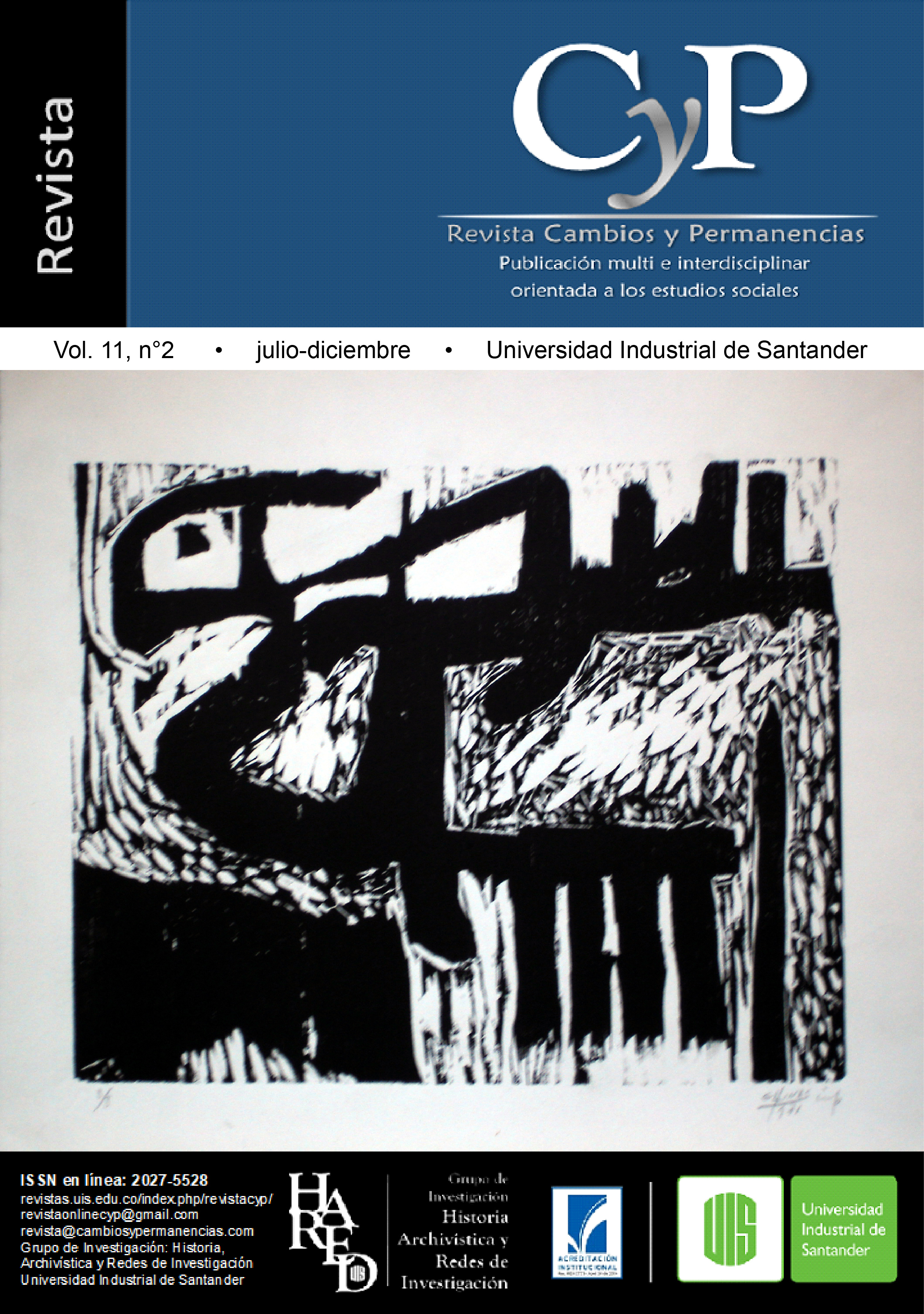Gastronomic tourism in the department of Santander - Colombia. Is the formulation of a strategic plan relevant for its consolidation as a tourism product?
Published 2020-12-15
Keywords
- Tourism,
- Gastronomy,
- Santander,
- Gastronomic Tourism
How to Cite
Abstract
This research presents a descriptive analysis from two approaches: The first, inquires in tourists if the gastronomy of Santander is one of the motivating factors at the time of purchase of the destination; the second, surveys among Santander's tourism service providers, state actors and academics, the relevance of a strategic plan that consolidates gastronomic tourism in Santander, as well as the willingness to cooperate in formulating it. A mixed approach was used, involving the analysis of bibliographic information and field work, using the survey for both approaches. It was found, from the first approach, that only 10% of the tourists who come to Santander know about a gastronomic tourist route, and that the average satisfaction of these tourists with the local gastronomy is 4.10 on a 5-point scale. From the second approach, that 90% of those surveyed consider it extremely important to have a strategic plan for gastronomic tourism in the department of Santander, but only 76.7% of those surveyed would be willing to initiate this articulation. Therefore, it is concluded the need for a public-private articulation that promotes the positioning and consolidation of the gastronomic offer in Santander so that national and international tourists consider it within their purchasing decision dynamics, and thus increase the average tourist expenditure in this tourist product.
Downloads
References
Arango, R., Naranjo, G., y Leones, A. (2018). La gastronomía colombiana. Atractivo turístico en crecimiento. Hitos de ciencias económico-administrativas, 24(68), 103‐115.
Asamblea Departamental de Santander. (2019). Ordenanza N° 09. Bucaramanga.
Barbosa, M. E. (2007). La política del turismo cultural y el diseño de producto turístico para el turismo cultural. Caso: corredor. Revista Escuela de Administración de Negocios, (60), 105-122.
Castellón Valdez, L. M., y Fontecha Fontecha, J. (2018). La gastronomía: una fuente para el desarrollo del turismo y el fortalecimiento de la identidad cultural en Santander. Turismo y Sociedad, (22), 167-193.
Castillo, F. (2012). Historia de la cultura campesina santandereana y su arraigo en el departamento de Santander, Bucaramanga. Bucaramanga, Colombia: Producciones gráficas Prograf.
CITUR. (2018). Estadísticas llegadas de visitantes por departamento. Centro de Información Turística. [Documento Web]. Recuperado de http://www.citur.gov.co/estadisticas/df_viajeros_ciudad_destino/all/2#gsc.tab=0
Corzo, D. (2019). Diagnóstico preliminar para la organización del plan de desarrollo turístico del destino Santander, Colombia. Gestión Turística, (31), 7-47.
De los Ríos, E. (2002). La cocinanza comedida: gastronomía santanderana. Bucaramanga, Colombia: UNAB.
Leal, M. P. (2015). Turismo gastronómico, impulsor del comercio de proximidad. Barcelona, España: Editorial UOC.
López-Guzmán, T. y Sánchez, S. (2012). La gastronomía como motivación para viajar. Un estudio sobre el turismo culinario en Córdoba. Pasos revista de Turismo y Patrimonio Cultural, 10(5), 575-584.
Mejía, A. (2009). Evaluación de la gastronomía colombiana como factor potencial de turismo. Medellín, Colombia: Fondo de Promoción Turística de Colombia.
MINCIT. (2016). Plan estratégico para la construcción del producto turístico gastronómico nacional 2014-2018. Bogotá, Colombia: Ministerio de Comercio, Industria y Turismo.
Organización Mundial del Turismo. (2019). Guía para el desarrollo del turismo gastronómico. Madrid, España: Organización Mundial del Turismo.
Pérez, M., y Castañeda, L. (2019). Santander, paisaje de sabores, cocina y cultura. Bucaramanga, Colombia: Universidad Industrial de Santander.
Pinzón, R. P., Camargo, J. A., Claro, F. C., y Macareno, G. B. (2016). La santandereanidad desde la perspectiva de la gastronomía y la culinaria. La Tercera Orilla, (16).
Prieto, M. F., y Triana, M. F. (2019). Las rutas gastronómicas en el departamento del Meta: una propuesta de sustentabilidad turística. Turismo y Sociedad, (XXV), 169-194.
Ramos, K., y Galvis, P. (2017). Turismo gastronómico: una nueva experiencia en Santander. Bogotá, Colombia: Universidad Externado de Colombia.
Rodríguez, L. M., y Cáceres, W. A. (2015). Salvaguarda por medio de la inclusión de una guía cátedra de Patrimonio Cultural Gastronómico para el programa de Gastronomía y Alta Cocina de la UNAB. Bucaramanga, Colombia: UNAB.
Rodríguez, L. M., y Dallos, A. Q. (2020). Patrimonio gastronómico de la Provincia de Yariguies (Santander). Jangwa Pana, 19(2).
SITUR. (2019). Estadísticas de participación visitantes extranjeros a Santander. Santander, Colombia: Sistema de Información Turística de Santander.
Vázquez, S. C., Méndez, K. M., Sánchez, M. V., y Corzo, D. (2020). La gastronomía como factor de motivación para viajar: un estudio sobre el turismo gastronómico en Santander. IF Ciencias sociales y humanidades, 1(1), 58-67.
Villero, E. (2016). Gastronomía como patrimonio cultural inmaterial promotor del turismo en el área metropolitana de Bucaramanga en Santander - Colombia. Bucaramanga, Colombia: Universidad Cooperativa de Colombia, Semilleros de Investigación.

